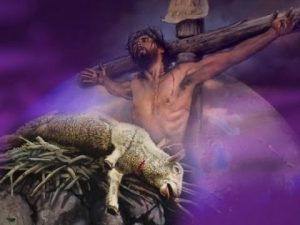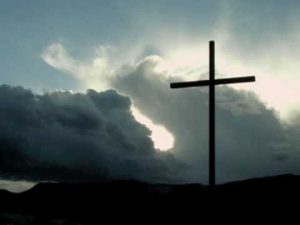Colossians 2:16
So let no one judge you in food or in drink, or regarding a festival or new moon or sabbaths.
There are some theologians and Bible teachers, that say the weekly Sabbath is a shadow of what is to come and that the Sabbath was fulfilled in Christ. Therefore, we should not keep the Sabbath of the Ten Commandments anymore. How far from Biblical truth these persons are!
Was the weekly Sabbath abolished by Paul in this text?
Firstly, when we look at verse 16 and apply the suggestion that the weekly Sabbath was abolished, then we should also apply the eating of food and drinking of fluid were also abolished. These suggestions are absurd to Biblical thought.
Secondly, the suggestion that the weekly sabbath was abolished at the cross does not appear in the text. One is doing eisegesis in the text and not exegesis. The text says that one should not judge or criticize one who keeps the Sabbath or eats food or drinks. The word for judge is “κρινετω – krineto” in the Greek and this is where we get the word “criticize” from in the English language.
What does the text really say from a Biblical analysis?
Firstly, we must look at the whole chapter and find out what the subject is?
The subject of the chapter is false teachings infiltrating the church at Colossae, which substituted the teachings of salvation through Christ and Christ alone. In other words, the false teachers were teaching salvation by works.
Colossians 2:4 Do not let anyone deceive you with persuasive words.
Colossians 2:8 Beware lest anyone cheat you through philosophy and empty deceit, according to the tradition of men, according to the basic principles of the world.
Colossians 2:11 In Him you were also circumcised with the circumcision made without hands. (The false teachings taught that one had to be circumcised to be saved. This would refer to saved by works from traditional Jewish teachers).
Colossians 2:14 Having wiped out the handwriting of requirements that was against us. And He has taken it out of the way, having nailed it to the cross.

Some teachers use this text to refer to the Ten Commandments; however, the word “handwriting of requirements” in the Greek is “χειρογραφον – chairographon” and means a paper with a list of all our sins written on it. ((1)), Walter Bauer says it is a hand written document or a certificate of indebtedness. This document with our sins written on it, was nailed to the cross. It was not the Ten Commandments.
Colossians 2:16 These false teachers judged people in relationship to food, or in drink, or regarding a festival or a new moon or Sabbath. If these Sabbaths meant the weekly Sabbath in the Ten Commandments, then it would mention the other commandments like stealing and bowing down to idols. But Paul does not mention any other commandments. He relates the Sabbaths to new moons and feasts, which are part of the ceremonial monthly and yearly Sabbaths. Fx. “Ezekiel 45:17 uses the exact same expression in the exact same order as Colossians 2:16.17 and connects it all with the ceremonial systems of feasts and sacrifices, Fx. Meat offerings, drink offerings, feasts, new moons, and Sabbaths to make reconciliation for the house of Israel.
Leviticus 23:5-32 discusses the ceremonial Sabbaths e.g. Passover, verse 5; unleavened bread, verse 6: wave sheaf, verse 10; first fruits, verse 17; trumpets, verse 24; Day of Atonement, verses 27-32; tabernacles, verse 34-36. Both the feast of trumpets in verse 24, and the Day of Atonement in verse 32 are specifically called Sabbaths. These annual Sabbaths were intimately connected to events foreshadowing Christ´s death and his Second Coming. They were designed by God to be shadows or pointers to the coming Messiah.” ((2))
Colossians 2:18 Let no one cheat you for your reward, taking delight in false humility and worship of angels, intruding into those things which he has not seen, vainly puffed up by his fleshly mind. (When Paul says let no one cheat you of your reward, he means do not let anyone substitute your belief in God for false works in coming to heaven).
Colossians 2:21 Do not touch, do not taste, do not handle.
Colossians 2:22 which all concern things which perish with the using-according to the commandments and doctrines of men?
Colossians 2:23 These things indeed have an appearance of wisdom in self-imposed religion, false humility, and neglect of the body, but are of no value against the indulgence of the flesh.
Conclusion
These false teachers in the church in Colossae taught that if one practices all the above points of false teachings, one can be saved. But what does Paul say? Colossians 2:17 These are a shadow to come, but the substance is of Christ. It is only through Christ that we can be saved and not through false teachings.
- Walter Bauer, A Greek Lexicon of the New Testament and Other Early Christian Literature (Chicago: The University of Chicago Press, 1979), 880
- Mark Finley, Studying Together – A Ready-reference Bible Handbook (Fallbrook, California: A publication of Hart Research Center, 1991), 30. 31.
